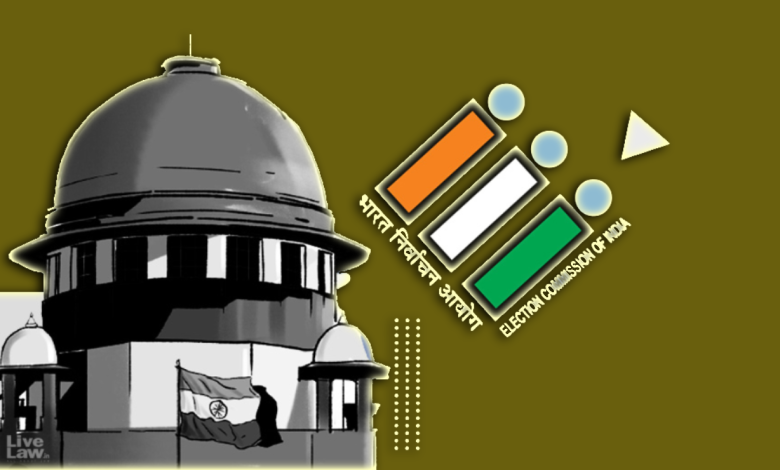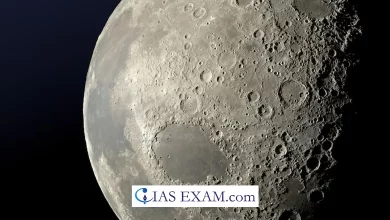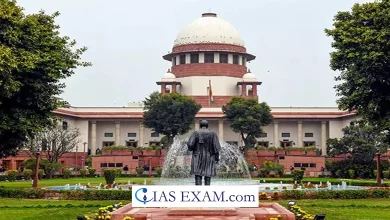Daily Current Affairs for UPSC
Bill on Election Commission members’ Appointments
Syllabus- Indian Polity and Governance [GS Paper-2]

Context- The government introduced the Chief Election Commissioner and Other Election Commissioners (Conditions of Appointment and Tenure) Bill, 2023 in the Rajya Sabha.
Key Highlights
- In SC, a public interest litigation was filed challenging the constitutional validity of the practice of election commission members appointed by the center.
- The commission is appointed by the President on the proposal of the Council of Ministers headed by the Prime Minister of the Union.
- In March, the Supreme Court ruled that the Election Commission should include the Prime Minister, the Leader of the Opposition in the Lok Sabha and the Chief Justice of India (CJI).
- The court said the order would remain in effect until parliament passed the law.
- The bill now aims to resolve this vacuum and create a legislative process for the appointment of the EC.
Basic provisions of the bill
- The Election Commission (Conditions of Service of Election Commissioners and Transaction of Business) Act, 1991 is hereby repealed.
- Election Commission: According to Article 324 of the Constitution, the Election Commission consists of the Chief Election Commissioner (CEC) and such number of other Election Commissioners (ECs), as the President may decide.
- The CEC and other ECs are appointed by the president.
- The composition of the same election commission is defined in the above bill.
- It adds that the President appoints the CEC and other commissioners on the recommendation of the Selection Committee.
- Selection Committee: The Selection Committee consists of:
(i) the Prime Minister as Chairman,
(ii) the Leader of the Opposition in the Lok Sabha as a member and
(iii) a Union Cabinet Minister appointed by the Prime Minister.
- If the Leader of the Opposition in the Lok Sabha has not been recognized, the role will be taken by the leader of the largest opposition party in the Lok Sabha.
- Search Committee: The Search Committee prepares a five-member panel for deliberations by the Selection Committee.
- The search committee is headed by the cabinet secretary.
- It includes two more members who are not under the rank of Secretary to the Central Government and who have knowledge and experience in election-related matters.
- The selection committee can also consider candidates who did not participate in the committee formed by the competition committee.
- Eligibility for CEC and EC: Persons holding or having held a post equivalent to the rank of Secretary to the Central Government can be appointed as CEC and ECs.
- Those persons must have knowledge of the organization and conduct of elections.
- Salary and compensations: The law (1991) provides that the salary of the ECs is the same as that of a judge of the Supreme Court.
- The draft stipulates that the salary, allowances and service conditions of CEC and other ECs are the same as those of the Cabinet Secretary.
- Tenure: The law (1991) stipulates that the CEC and other European Commissions serve for six years or until they reach the age of 65, whichever is earlier.
- If an EC is appointed as CEC, his term of office cannot exceed six years.
- The bill retains the same tenure. In addition, according to the law, the CEC and other ECs do not have the right to re-appoint.
- Mode of action: All questions of the selection committee are resolved unanimously.
- If there is a disagreement between the CEC and the rest of the EC, it will be resolved by a majority vote.
- Impeachment and Resignation: According to Article 324 of the Constitution, the CEC can only be removed from office in the same way as a Supreme Court judge.
- This is done by presidential order based on a proposal passed by both houses of parliament in the same session.
- A motion for impeachment must be approved by:
(i) the support of a majority of the entire membership of each House, and
(ii) the support of at least two-thirds of the members present and voting.
- EC can only be dismissed on the recommendation of the CEC.
- The bill retains this removal procedure. In addition, the 1991 Act provides that the CEC and other ECs may submit their resignation to the office of president. The bill has the same provision.
Concerns
- The bill replaces the CJI with a cabinet minister as one of the members of the election commission, thereby nullifying the Supreme Court’s decision on the appointment of the chief election commissioner and other election commissioners.
- This calls into question the neutrality of the Election Commission (EC), because the electoral committee would practically consist of two members of the ruling party – the Prime Minister and the Minister.
- The opposition sees this as an attempt to control an institution that is supposed to be independent.





.png)



